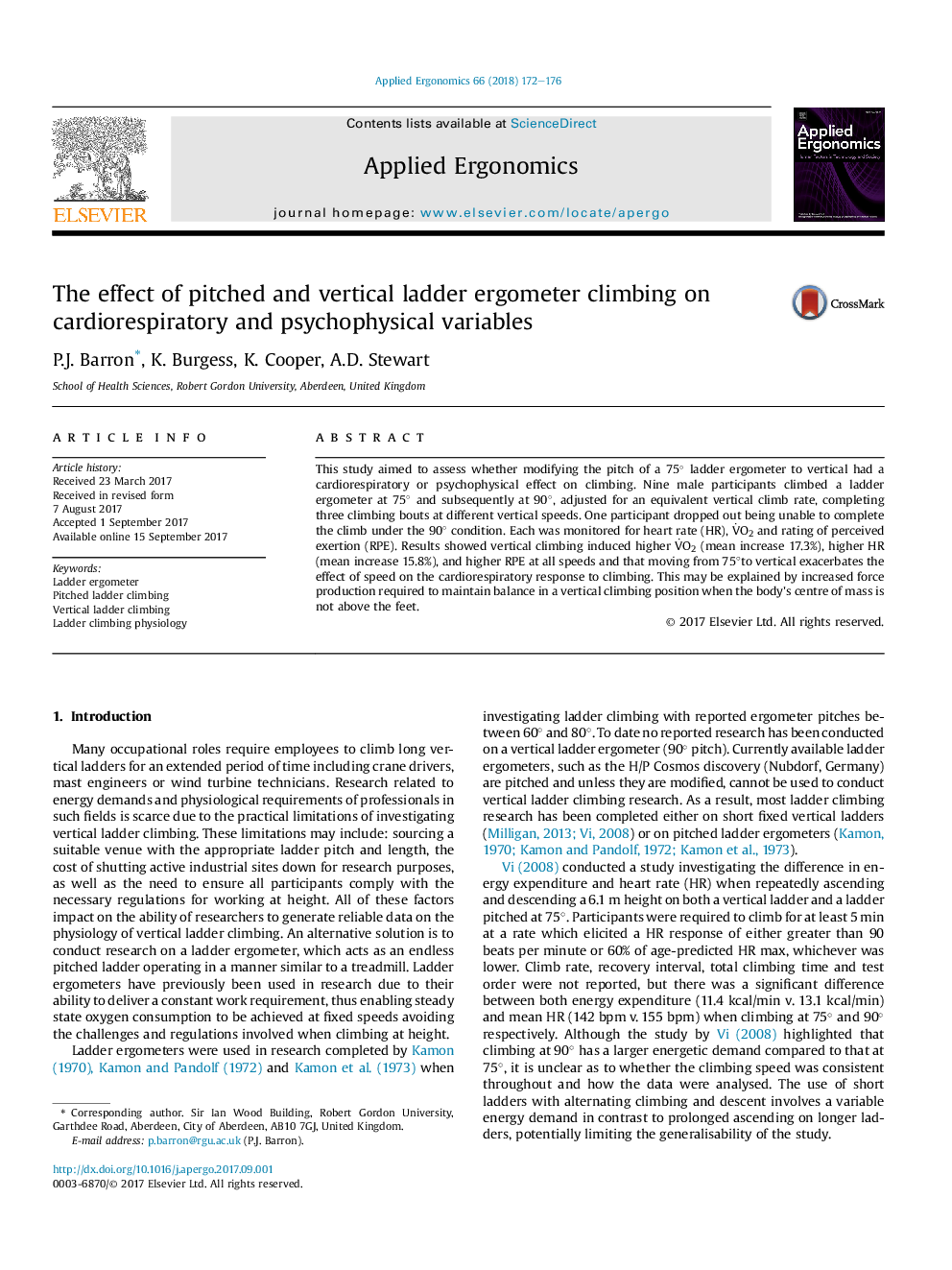| Article ID | Journal | Published Year | Pages | File Type |
|---|---|---|---|---|
| 4972007 | Applied Ergonomics | 2018 | 5 Pages |
â¢A ladder ergometer was modified from 75° to 90° to assess the effect of pitch.â¢VËO2, Heart Rate (HR) and RPE were measured at three speeds to assess this effect.â¢Ladder ergometer climbing at 90° v. 75° significantly increases HR, VËO2 and RPE.â¢Vertical climbing shifts the body's centre of mass beyond its base of support.
This study aimed to assess whether modifying the pitch of a 75° ladder ergometer to vertical had a cardiorespiratory or psychophysical effect on climbing. Nine male participants climbed a ladder ergometer at 75° and subsequently at 90°, adjusted for an equivalent vertical climb rate, completing three climbing bouts at different vertical speeds. One participant dropped out being unable to complete the climb under the 90° condition. Each was monitored for heart rate (HR), VËO2 and rating of perceived exertion (RPE). Results showed vertical climbing induced higher VËO2 (mean increase 17.3%), higher HR (mean increase 15.8%), and higher RPE at all speeds and that moving from 75°to vertical exacerbates the effect of speed on the cardiorespiratory response to climbing. This may be explained by increased force production required to maintain balance in a vertical climbing position when the body's centre of mass is not above the feet.
